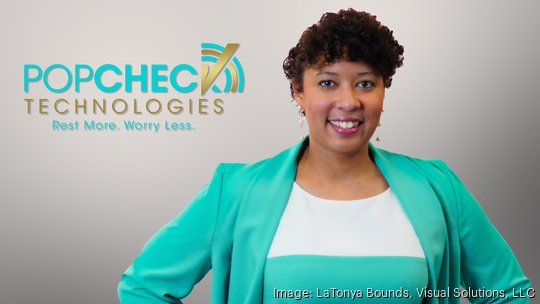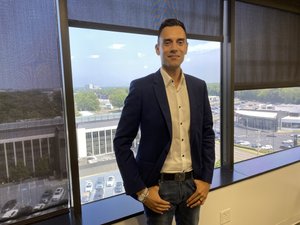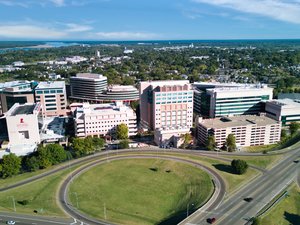
Dr. Erika Dillard, Ph.D., wouldn’t mind having a moment to spend at home.
“Since February, I don't think I've really been home more than a couple of days at a time,” she told MBJ.
But where has Dillard been? There’s no short answer to that question, as she’s been out and about, looking to continue gaining momentum for her local medical device startup, PopCheck Technologies.
“This first half of the year has been really focused on networking, fundraising, and clinical validation,” she said.
Off to Ghana
For example, in late February, Dillard left for a monthlong trip to Ghana.
The first half of it was dedicated to medical mission work. But the second half was spent preparing for an effort that’s set to buoy PopCheck’s aspirations. Dillard is expected to test a prototype of her medical device — which could predict if patients are going to develop venous blood clots — on patients at FOCOS Orthopedic Hospital, a cutting-edge medical institution in the nation’s capital, Accra.
And the hospital’s patient population could help her ensure her product is effective for a wider group of people — which isn’t necessarily the case for every type of medical technology.
“When we think about technologies that are based off of AI and machine learning,” Dillard said. “How that affects health equity — based off of the data sets that are used to create those predictive models — can be really interesting.”
Take, for example, pulse oximeters, which measure the amount of oxygen in the blood.
“That technology had been notoriously known to not be accurate for patients who are darker skinned,” she said. “It really is a personal interest of mine to make sure that when we're creating technologies that utilize AI and algorithms, that it’s utilized in a way that is encompasses everybody. … So, that’s why it’s really a big thing for me to be able to get this particular part of the study done with a population that we’re focused on.”
But Dillard can’t begin the testing overnight. This will be her first time doing human trials, and there’s a lot of prep work that must be done. As she put it, “boxes have to be checked before you can even start recruiting patients for a study.” So, in March, she focused on preparing for the tests, and in July, she’s slated to return to Ghana, as patients are enrolled in the study.
“This will provide a lot of information for us, and how we can move forward not only from the clinical validation aspect, but also from the technology aspect — moving the prototype into what is more a minimal viable product as well,” she said.
Seeking funding
As if that weren’t enough, she’s also participating in Memphis Crucible, Epicenter and Alchemist’s pre-accelerator program and in a biomedical accelerator pilot run by the Wond’ry, Vanderbilt University’s center for innovation and design.
And a few months ago, she participated in the Capital Readiness Program at the University City Science Center in Philadelphia, along with another local startup, SweetBio. Designed for medtech startups with plans to raise $1 million to $5 million, it prepares them to seek capital, and readies them for those wanting to invest.
There was information presented on financial plans, pricing models, and executive summaries, and guidance on how to keep them organized in one place for investors to see. There were talks from officials at places like the National Institute on Aging — a division of the National Institutes of Health (NIH) — to discuss applications for a Small Business Innovation Research (SBIR) grant.
“It really, literally, was all encompassing on getting companies ready to seek out funding,” Dillard said.
Her participation in the program was timely, as she’s currently looking to complete a $1 million seed round. After raising about $110,000 from friends and family, she’s shifted her strategy, turning her attention to angel investors and venture capital (VC) firms.
'Early traction'
Dillard is also preparing to submit for a SBIR grant with the National Science Foundation (NSF).
And she could introduce a separate product to the market before her medical device, as she has a digital platform that helps manage post-operative patients, by providing an interface for them to communicate with their providers. Fostering what Dillard referred to as a “co-production relationship,” it’s expected to give patients “access and ownership of their recovery,” and assist in the management of their care.
It could allow PopCheck to enter the market earlier, as its flagship device must go through the long, expensive process of obtaining FDA approval.
“This could potentially be a way for us to get out into the market and start getting some early traction and customers, to help support our pathway to market for the device,” she said. "When you're a founder, especially in this early stage, you have to be open and flexible to things that come up, where the market is telling you what they want."









